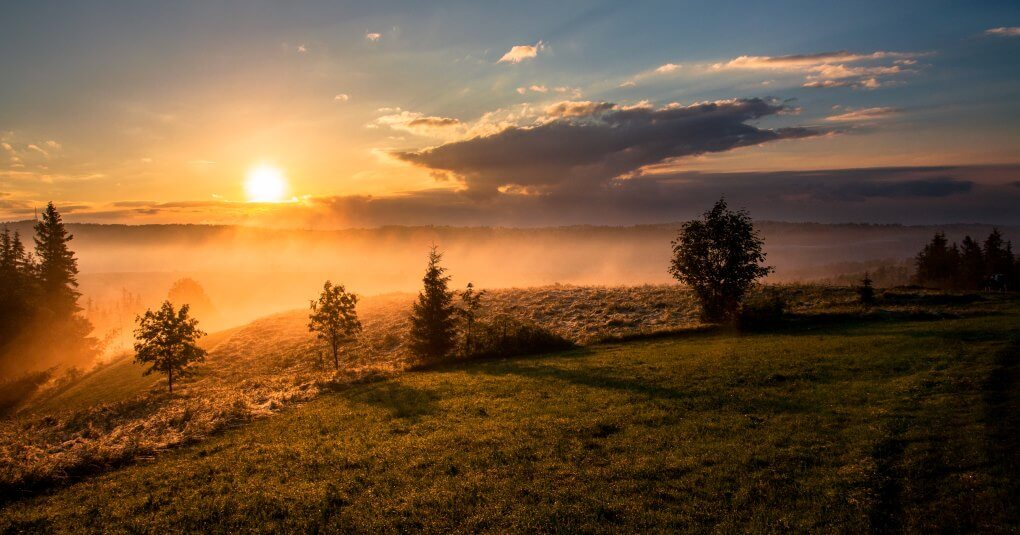Monday’s Meditation
Mondays… that sighing, hesitant start to the week.
Have you ever thought about these questions?
How is God at work in me?
How has God made me?
How does the world need me?
These thoughts stem from a quote by Fredrich Buechner.
“The place God calls you to is the place where your deep gladness and the world’s deep hunger meet.”
I discovered this truth whilst doing a semester on Theological and Spiritual Formation. We were asked to examine: Our core values, our Biblical purpose, talents, gifts, passions, personality and temperament.
When all of these intersect we are filled with a deep gladness and this is where we find our personal calling or vocation. It is not mystical or magical, it is the deepest truth about who you are, how God created you to be and where you intersect with the world around you. However often we don’t take the time that is needed to contemplate and reflect on these things about ourselves.

Meditation or contemplative prayer has been apart of Christian tradition since its earliest days.
It is an ancient principle that is proven to:
- reduce anxiety
- reduce stress
- and helps you to sleep.
We live in an a society that rewards addictive behavior. Our lives are getting faster and faster and more is required of us every day. It’s vitally important that each of us take time each day for self-care. We need to learn to stop, reflect and breathe.
What is God saying to me today? How do I process this? How do I proceed? Can I just BE instead of DO?
In this addictive culture we often feel out of breath. Robert Mulholland makes a brilliant analogy between the contemplative life and the active life. In other words who we are and what we do. He likens it to breathing in and breathing out. Breathing in he explains is Spiritual Formation, and breathing out is the mission with Christ. Following Christ with no application to mission is like inhaling and not exhaling. Likewise if we are constantly doing without being we run out of breath and are forever exhausted.
The Benedictines emphasised a life that was balanced and sustainable. A life of quality and intentionality. We could all benefit by managing our time and being disciplined in the areas of spiritual reflection, work and education. This is an art not many have mastered in our fast paced society. The Benedictine teachings show us how to balance a life of study, work and prayer. They believe that you should live your life by example and be considerate to all. Enjoy relationships with family and community. Walk humbly before God and fellow-man with wisdom and love. This message and mandate has endured down through the centuries. Whilst empires and nations have risen and fallen monasticism managed to survive and remain resilient throughout the ages. It is an enduring legacy and model for all leaders but especially those who follow in the footsteps of Christ and the giants of the faith who have gone before us.
Journey with me and other spiritual leaders on Mondays as together we take the time to read a scripture a prayer or reflection.
Recommended Readings:
Barton, Ruth Haley. Sacred Rhythms: Arranging Our Live for Spiritual Transformation. Downers Grove, IL: Intervarsity press, 2006.


Derkse, W. Listening and responding: Benedictine spirituality in non-monastic contexts. Logos Journal (Vol.3:3)


Helen and Scott Nearing, Living the good Life…How to live Sanely and Simply in a Troubled World. Harborside, ME: Social Science Institute, 1954





I look forward to viewing content. I like the convenient layout, and helpful wisdom. Thanks.
LikeLiked by 1 person
oh forgot. Check out Dr.Caroline Leaf.She did her phd on neuronscience.How positive,kind,loving words said by myself or others affect the brain and what affect not such good words have on our brain.Because of modern technology she was able to prove her assumption…xxxx
LikeLiked by 1 person
Oh I know. Dr. Caroline Leaf is an inspiration. For those who don’t know her she has put out several books: One of them is Switch on Your Brain which helps you to deal with Toxic Thinking. http://drleaf.com/about/
Thanks for the Recommendation Satu. xxx Lisa
LikeLike
Hi,just have time to expand on my reply now.
My circumstances were such that I had been in state of total anxiety for about a week: I had barely slept,had barely eaten. I was shown a form of meditation. I took 8-10 deep breaths though nose into my stomach and “pushed” it out w.my stomach muscles ,out through my mouth quick;this is said to make us relax fast.
Meditation itself was breathing in through my nose,out through my mouth: I breathe out FEAR,I breathe in PEACE, I breathe out SHAME ,I breathe in LIFE,…Out EGO,in GOD;s WILL.
I did 5-10 min.at the time,3 xday,which helped me to eat.When I woke up in the middle of the night in panic, I did it and fell back to sleep.That was the first 3 weeks.I settled from that trauma.
Now,I do it 2xday ,5-15 min at a time,I dont really look at the time, I do it according my need.
I ask God for a picture,specially when something is disturbing me,and do my meditation eg.I breathe out “connection to sth/someone” and breathe in “boundary to this..” I say it out loud,gently. Or ” unforgiveness toward …breathe in forgiveness…”. I breathe out self-neglect,in: love for self…
Some internal healing issues take lot longer,but those visions do change,so I am being changed sometimes quicker,sometimes slower,but this is part of my daily journey and practice,now.
LikeLiked by 1 person
Wow this is so powerful. Satu thank you for sharing that. This is fascinating: “I took 8-10 deep breaths though nose into my stomach and “pushed” it out w.my stomach muscles ,out through my mouth quick;this is said to make us relax fast”. A good tip for those suffering from anxiety.
Thank you so much for sharing your journey. These type of things give us hope. You are an inspiration. xxx Lisa.
LikeLike
Oh what a nice thing to say. So nice to have you on the journey. Love xxx
LikeLike
Monday might just become my favourite day of the week now 🙂
LikeLike